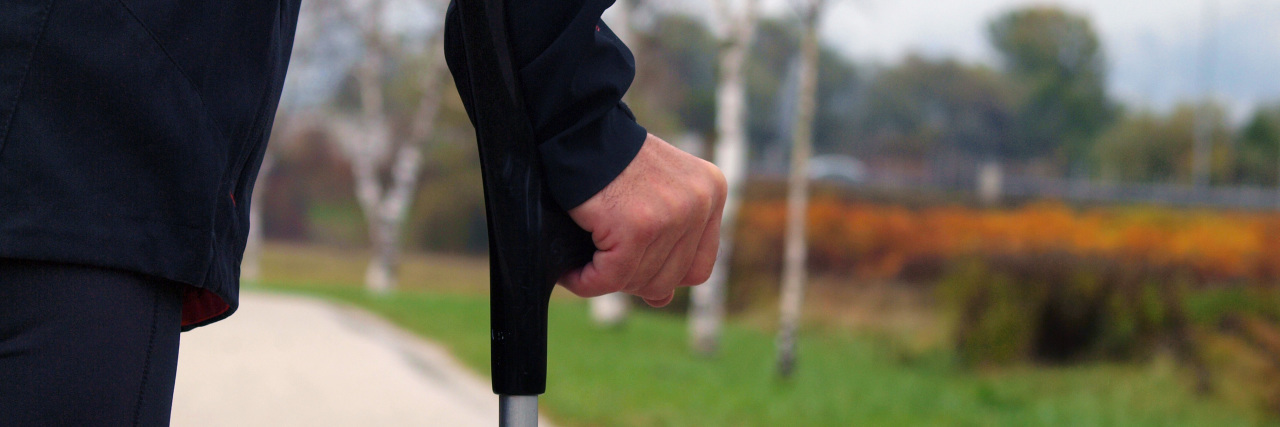I sat there looking at him. Nothing he said that would explain this pain could be good. Maybe you have been in a place like this. That moment when you know that the next sentence is not going to be good or something you want to hear because the only possibilities before you are ones that stink.
Sitting in a doctor’s office often presents this scene. When you are in pain, or your health is struggling, many times the news these individuals deliver is not what the patient wants to hear. Once that news is received, the hardest part we face is accepting that diagnosis and the changes that life is about to hand us.
I have sat in this position many times in my life, and no matter how often it occurs, it never gets any easier. I have cried, I have laughed, and sometimes, I have just sat there in stunned silence, yet each time, my reaction said the same thing – “I can’t believe I am hearing this. This can’t be happening.”
With each diagnosis, there has been a struggle to accept the “new norm” for my life. At 15, when I heard I had rheumatoid arthritis for the first time, I did not know what to think or how to accept it. And every year after that, for 31 years, I have had to come to terms with new levels of acceptance.
I was asked what “tips” I had for accepting a rheumatoid arthritis diagnosis. While I am sure there are many more than what I have included below, this list represents things I have had to come to terms with to accept my life with rheumatoid arthritis:
1. If you’ve recently received a rheumatoid arthritis diagnosis, or even if it’s been months or years, it is OK not to be OK.
This was a hard one for me. It is OK to struggle – acceptance takes time. Don’t expect to come to terms with this tomorrow. For me, it has taken decades, and on the days when I am struggling, and I am not OK, that is OK.
2. I may lose a lot because of rheumatoid arthritis, but I will also gain many things.
Just this weekend, I shared with tears in my eyes to my wife the pain of all I felt I had lost. But there is also so much I have gained. Each day, though, I choose which of these lists to focus on, and that, more than anything, will shape my day and my future. I just need to be sure that I focus on what will help me in the future. What I choose to focus on will determine the reality I live in.
3. Laugh when you can (even at yourself).
Laughter really is the best medicine in life with rheumatoid arthritis (or any life-changing chronic illness). I have found when I can laugh, in the midst of this struggle, and sometimes at it, I have truly begun to accept my lot in life.
4. On the flip side, I have also realized that I can cry when I need to.
Tears can be very therapeutic and are sometimes the most needed thing. Often, we are embarrassed or ashamed or feel weak for this, but showing emotion and being open with where you are is one of the strongest things you can do.
5. Accept yourself for who you now are and realize that you are still special, and you still have a purpose.
Sometimes our rheumatoid arthritis diagnosis can make us feel useless or without a purpose, but the reality is, we still have so much to offer. Give yourself time to find it, and then go after that. Just because you can’t do some things, does not mean you can do nothing.
6. Forgive yourself for having rheumatoid arthritis.
This may sound silly or odd, but there is often guilt we must let go of – the guilt of others having to care for us, guilt for things we cannot do, the guilt of the sorrow it brings others, or guilt for the things we and others miss out on. These are all real and they are not our fault. When we let go of this guilt, we or others have placed upon us, we can begin to accept where we are in life with rheumatoid arthritis.
As we do these things, we can begin to accept the course our life is now taking with rheumatoid arthritis. Acceptance is not a one-time thing, but a day-by-day, minute-by-minute choice. Acceptance does not mean we have conceded or given up, but simply that we know this is our life, and we are OK with that. As we accept, we can then have the opportunity and choice to face the future with the hope that no matter what the future holds, we will face it head-on.
Getty image by Alenka Vujkovac.

